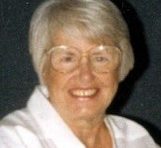The Mickey Play
- Share
- Tweet
- Pin
- Share
One of the biggest challenges for adults is coaching kids’ baseball. Keeping fifteen or so high-octane kids focused and out of trouble for two hours without losing one’s sanity is no easy feat. The team I coached was made up of middle-school boys, not fully distracted by girls, but beginning to form opinions on the subject. They were out to play a little ball and clown around and talk knowledgeably about any manly subject. When I started coaching, I didn’t know a thing about baseball and even less about coaching. I learned as I went and gradually our team became a respected competitor against teams coached by more experienced counterparts. Our team wasn’t championship caliber. We won games by stealing bases and through other forms of treachery. We had fun, most of the time.
We had a little kid on the team named Mickey. Mickey had been placed on my team because of my ‘relaxed’ coaching style. The director of the league figured I wasn’t going to win any games anyway, so what the heck. Mickey was small for his age and bright and more interested in intellectual matters than in putting wood on the ball. With his little crooked cap and his big inquisitive eyes, he looked like the little brother of the smallest kid on the team. We had a little red metal bat, which was more like a toy bat, which became known as Mickey’s bat, since Mickey was the only kid small enough to use it. Mickey got on base a lot just by standing at the plate and watching the balls go by. His strike zone was so small that it was a rare kid who could strike him out, so he walked a lot. This was hardball and, of course, all the kids had gloves, but Mickey’s glove was about ten sizes too big for him. Frequently we found him out in the field, glove on the ground, studying botany on his hands and knees. When Mickey was on the field, we were playing with eight players against our opponent’s nine.
We always put Mickey in right field. Any kid knows that right field is where the weakest kid plays. When you send a kid to right field, they always hang their head, grumble, and strongly protest. “Aw, Coach. Not Me. What did I do wrong? I promise not to miss practice again.” I always tried to tell the team that right field was not a punishment and was as important as any other position. I believed it then and I believe it now. More than once balls hit to right field went uncaught and chased after by the weakest kid, the least able to make a long throw back as the runner safely circled the bases. I never felt bad about sending a good player to right field. I had good players in right field many times who made nice plays. But right field is where Mickey played, when he played.
It was an early evening, warm and sultry, with bugs buzzing in the outfield. Our league only played seven innings. It was the bottom of the seventh, two outs, and no men on. We had gotten lucky and scored a run during our last turn at bat putting us up by one. If we could just hold on, we would win. The tension was as tight as a baseball stitch. The crowd was silent. The kid at the plate was the other team’s biggest player and had belted a long ball to center field in the first inning that drove in two runs and he had scored again in the fourth. We had spent most of the game trying to keep up. The first pitch was a strike. The other team’s coach called a timeout and wanted the plate cleaned off. While he was ‘discussing’ the call with the ump, I called the infielders together and we consulted. Mickey was playing in right field, but he wasn’t playing baseball. He was down on his knees inspecting the flora and fauna. Our fastest runner, Tommy, was playing first base. Tommy had a great arm, and should have been in the outfield, but he was tall and could cover first base better than anyone because of his long reach. I told the infielders this: If the ball goes to right field, the first baseman will go after the ball. The second baseman will move to first, the shortstop will cover second. That way all the bases are covered and Mickey would be neutralized. They all returned to their positions trembling with excitement at being part of the dark conspiracy.
The game resumed. Our pitcher, a tall, gangly, and goofy kid with baggy pink sweat pants, dug a trench in the mound and squinted over his glove at the batter. He reached back and came forward and stepped down on the rubber toward the plate and hurled the ball. Crack! As feared, the ball disappeared in the clouds traveling east into deep right field. Mickey was squatting with his back to home plate. His glove was a dozen feet away. Tommy took off like a shot, a cheetah chasing prey through a sea of grass. The runner was rounding first and was well on his way to second. He had a smirk on his face as wide as the sky. He had hit the ball to the little kid in right field who would never catch it, and if he did, he could never throw it back. In his mind he was on his way home to celebrate his performance in the midst of admiring fans, signing autographs, posing for photos.
The second baseman had moved toward first, but had given up covering the base and had shifted to the edge of the dirt where he was jumping up and down, waving his arms for the ball. The runner rounded second and left the shortstop standing alone on the bag. The crowd was on their feet. Parents were cheering the runner and yelling a fusillade of instructions and commentary. “Where is the first baseman going? Get back into position! Wake up, Mickey! Throw the ball home! The coach has lost his mind!” Tommy chased down the ball, dug it out of the grass, whirled around, and fired it. He looked like he was a half-mile away. The tiny white sphere once again was airborne. It climbed quickly with a low graceful arc. You could almost feel the warm humid air tugging at those red stitches. The third baseman could see the runner bearing down on him. He stood firmly on the bag with one eye on the runner and one eye on the ball. Time stopped. The crowd hushed. The runner slowed to a cocky trot looking over his shoulder to watch the spectacle. He was closing in on third and getting ready to touch the bag and stroll home. The third baseman put out his glove and the ball dropped in like it had been handed to him by his mother after picking it out of her flower bed. The runner stopped in horror as the third baseman stepped forward and tagged him. Our bench emptied onto the field like a spilled glass of milk. Pandemonium! Tommy was surrounded by hoops and hollers. The third baseman got his hair seriously tousled. Clutching a fist full of clover blossoms, Mickey joined in, unaware of the reason for the celebration, but happy to participate. The jubilant winning team slowly made their joyous way back to the dugout while the losers hung their heads in shame. The game ball was presented to me by the third baseman in front of proud and admiring parents.
The July sun hung low in the sky. Insects buzzed merrily among the blooming clover. Kids piled into cars and were whisked away. A few sauntered off pushing bicycles, laughing and shoving. I hung around the field after everyone had gone loading up the equipment and tidying up the diamond. I found Mickey’s glove in right field where he had left it among the lengthening purple shadows of a mid-summer evening, full of little flowers and tiny rocks and rusty bottle caps.
Gary W. Dawkins’ Bio: I am a long time property owner in Door County where I have been regularly seeking tranquility for over twenty-five years. By trade I am an architect participating in many forms of creativity. I have attended short story writing classes at the University of Wisconsin/Milwaukee and Cardinal Stritch University.


